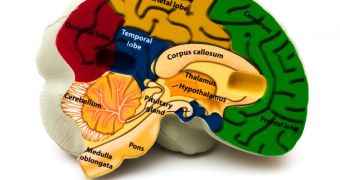Over the years, there have been many studies focused on how hormones affect the bodies of both mother and baby. Yet, very few of them were focused on investigating how the chemicals change women's brains. This is the focus of a new research, and the results are interesting, to say the least.
Whenever a child starts growing inside a woman's womb, her body begins to react and adapt to the pregnancy. One of the way it does that is by releasing massive amounts of particular hormones, whose effects (at low concentrations) experts are familiar with.
These chemicals accumulate in the body, and lead to a host of modifications that make it easier for the fetus to develop. The effects hormones have on a mother’s health, moods and behavior are well known, as are the effects the chemicals have on how the child develops psychologically and cognitively.
But the question that appears to have slipped the mind of every researcher out there is related to how such high concentrations of otherwise benign chemicals influence the brain of the would-be mother.
“Pregnancy is a critical period for central nervous system development in mothers. Yet we know virtually nothing about it,” explains Chapman University psychologist and study team member, Dr. Laura M. Glynn.
Together with colleague Curt A. Sandman, PhD, from the University of California in Irvine (UCI), the expert published the conclusions of a new study they conducted on the issue. The work appears in the latest issue of the medical journal Current Direction in Psychological Science, PsychCentral reports.
One of the possible explanations for the occurrence of this hormonal flood is – from an evolutionary point of view – that it helps women become mentally-prepared for the tough decisions and the care needed to make them into good mothers.
The chemicals could also provide them with increased resilience to stress, while at the same time increasing their overall empathy levels . This could be one of the first steps in generating that motherly love that crosses all boundaries.
There are also disadvantages to this flood of chemicals, such as mild neural impairment both before and after birth. “There may be a cost, but the benefit is a more sensitive, effective mother,” Glynn concludes.

 14 DAY TRIAL //
14 DAY TRIAL //